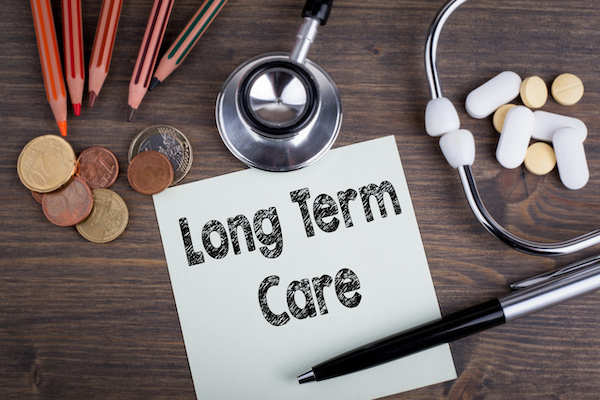Assisting With Senior Care – Has Anything Changed?

On July 9, 2019, I submitted a column to the Daily Local News discussing changes, if any regarding payment for long term care for seniors. With another presidential election coming up I found the column again. This is what it said.
Over the holiday weekend I had a chance to handle some cleanout at home including the opportunity to review some past forgotten columns in the West Chester Daily Local News. With more than twenty years of columns under my belt, so to speak, there was some history built here…
One in particular, however, struck me as relevant for purposes of comparison to today. The date was October 23, 2000. The text was labeled “A letter to the presidential candidates on senior needs.” Remember 2000? The candidates were George W. Bush and Al Gore. The column made suggestions regarding future needs for seniors, especially health care needs. What I found interesting was a comparison between 2000 and today, almost 19 years later. Here are some of the suggestions made in that column and then observations from a 2019 perspective.
“As a columnist who writes often on senior health care and related legal issues, it occurred to me that only an ostrich who sticks her head in the sand could avoid noticing how much attention the current presidential campaign has paid to health care and senior issues.
This said, I, never being one to tread lightly, decided to send an open letter to the Republican and Democratic candidates to share with them some of my own views…
Dear Governor Bush and Vice President Gore: Greetings from Chester County, Pa. As a citizen of the state with the second largest percentage of residents over the age of 65 in the nation and as an attorney and columnist who works regularly with the elderly and their families, I would like to suggest to you some policy considerations which may or may not have played a role in your determinations for the next four years…”
Then come the suggestions.
“Make nursing home care fully tax deductible. Nursing home care could easily be described as the single largest unplanned unscheduled cost in the budget of a senior or his or her family. To do this, families frequently liquidate stocks and other investments triggering capital gains taxes which are only partially offset, if at all, by medical deductions under the present code. It is time to make the entire cost of nursing home care tax deductible…”
Here is my 2019 commentary. Nursing home care is still not fully tax deductible. Although as a medical deduction, cost could be deducted if it exceeds 7 ½% of adjusted gross income, under the new tax law passed last year more taxpayers file under the standard deduction. It would make sense today to make nursing care fully tax deductible. After all, otherwise as assets are dissipated the government is at risk to pick up the cost under the Medicaid program.
Another suggestion in my 2000 column was to incentivize states to offer more at home care. This is what I said then.
“Provide incentives to states to explore treatment for seniors in the least restrictive environment, preferably at home or in assisted living. In states such as Pennsylvania,the overwhelming majority of funds available under the federal Medicaid program, which comes into play after a senior’s personal resources have been essentially exhausted, to toward treatment in nursing homes. While some seniors have no other realistic alternatives, many of them would like to remain reasonably independent and in their homes—or in some midway alternative which provides support like an assisted living facility – as long as possible…”
Here is my 2019 commentary. While there is more funding available for at-home care than previously, it still is severely limited especially for those with middle income. As to assisted living, with the exception of Aid and Attendance, a Veteran’s benefit limited to wartime veterans, there is essentially no government support for Pennsylvanians in personal care/assisted living.
While many decisions regarding funding for care are made at the state and not the federal level, recognizing the need there is not the help that those who need help might anticipate or believe is readily available.
This “message from the past” lets us know there is still a long way to go.
About the Author Janet Colliton
Esquire, Colliton Law Associates, P.C. Janet Colliton has practiced law for over 38 years, 37 of them in Chester County, Pennsylvania, a suburb of Philadelphia. Her practice, Colliton Law Associates, PC, is limited to elder law, Medicaid, including advice, applications and appeals, and other benefits planning including Veterans benefits, life care and special needs planning, guardianships, retirement, and estate planning and administration.
